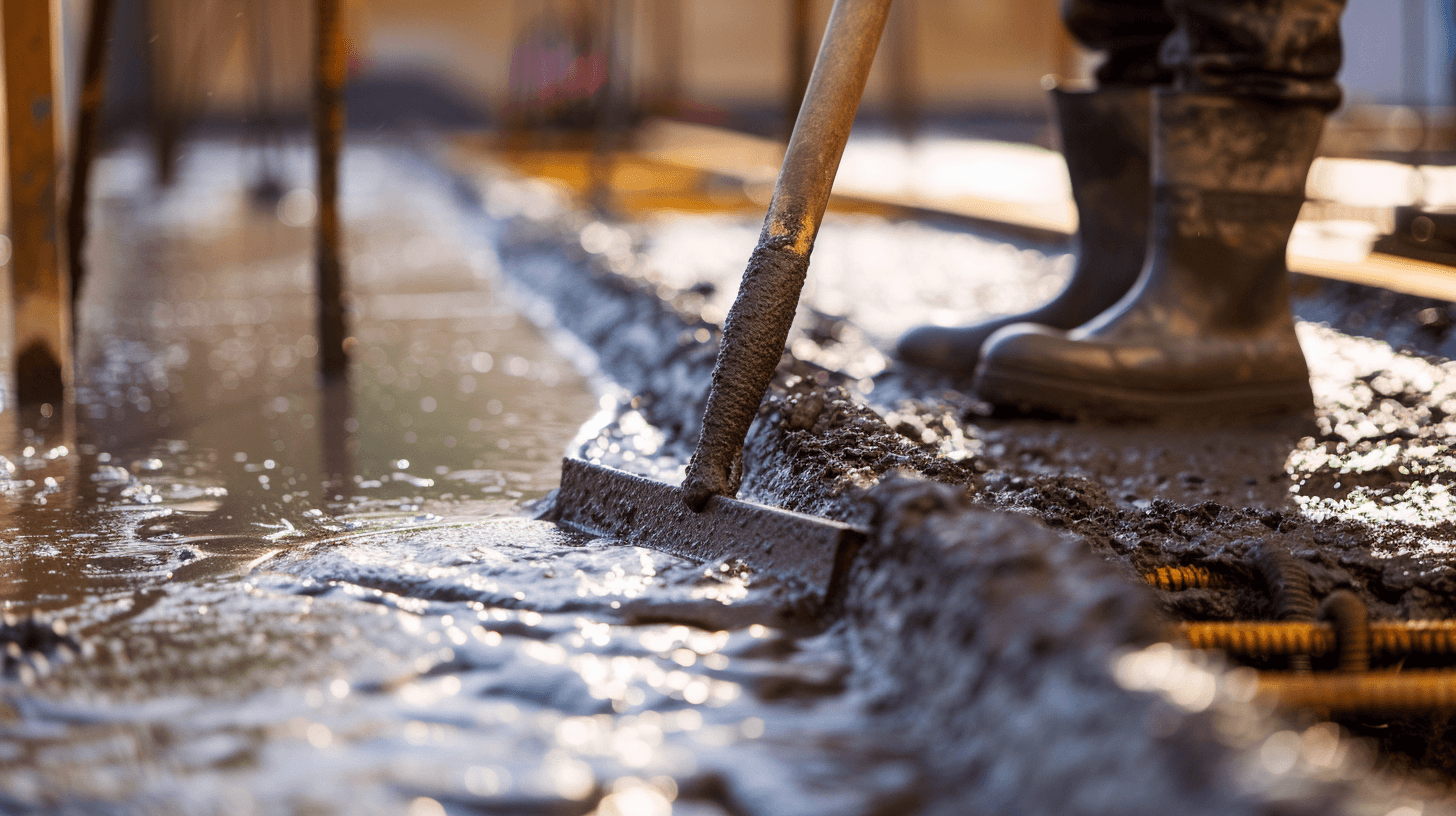Did you know that the concrete industry is projected to reach a market value of $439.6 billion by 2026?
Understanding concrete contracting can seem daunting, but breaking it down into manageable steps can make the process much more straightforward.
From selecting the right contractor to learning about different concrete mixtures and finishes, this guide aims to simplify the complexities of working with concrete.
Let’s navigate through the basics together.
The Basics of Concrete Contracting
When starting out in concrete repair, or concrete contracting, understanding the fundamental principles is crucial for success. You need to grasp the basics of concrete composition, curing times, and proper installation techniques.
Begin by familiarizing yourself with the different types of concrete mixes and their respective applications. Learn about the importance of proper site preparation, including excavation, grading, and formwork.
Understanding how to calculate the amount of concrete needed for a project is also essential. Moreover, make sure you’re well-versed in safety protocols and regulations to maintain a secure work environment.
Selecting the Right Contractor
To ensure the successful completion of your concrete project, finding the right contractor is paramount. Start by researching potential contractors online or asking for recommendations from friends and family. Look for contractors with experience in concrete projects similar to yours and check their past work through reviews or portfolios.
When contacting potential contractors, ask about their licensing, insurance, and guarantees. Get multiple quotes to compare prices and services offered. Communication is key, so make sure you can easily reach and communicate with the contractor throughout the project.
Trust your instincts and choose a contractor you feel comfortable with and who understands your vision for the project.
Understanding Concrete Mixtures
Understanding the composition of concrete mixtures is crucial for ensuring the strength and durability of your construction projects. Concrete mixtures typically consist of cement, aggregates like sand and gravel, water, and sometimes additives or admixtures to enhance specific properties.
The ratio of these components determines the concrete’s strength, workability, and durability. For example, increasing the amount of cement in the mixture can improve strength, while adjusting the water-cement ratio impacts workability. It’s essential to follow recommended mix designs and proportions to achieve the desired characteristics for your project.
Exploring Different Finishes
To achieve a polished and professional look for your concrete projects, it’s essential to consider exploring different finishes that can enhance the aesthetics and functionality of your structures.
Some popular options include smooth finishes, which provide a sleek appearance and are easy to clean. Exposed aggregate finishes reveal the natural beauty of stones and are highly durable. Textured finishes offer increased slip resistance, making them ideal for outdoor surfaces. Stamped concrete can mimic various materials like brick or wood, adding visual interest. Stained finishes can bring color to your concrete, creating a unique and customized look.
Maintenance Tips for Concrete
For effective upkeep of concrete structures, regular maintenance is essential to ensure longevity and optimal performance. Start by inspecting the concrete surface for any cracks or damages. Fill in small cracks with a concrete patching compound to prevent them from expanding.
Clean the concrete surface regularly using a mild detergent and water to remove dirt and stains. Avoid using harsh chemicals that can damage the concrete. Sealing the concrete every few years can help protect it from moisture and prolong its lifespan.
In colder climates, use de-icing products sparingly as they can harm the concrete. By following these maintenance tips, you can preserve the quality and appearance of your concrete structures for years to come.
Frequently Asked Questions
How Long Does It Typically Take for a Concrete Project to Be Completed?
Concrete projects usually take several days to weeks to complete, depending on the scope and size. Factors like weather, curing time, and project complexity can affect the timeline.
It’s essential to plan accordingly.
What Are Some Common Challenges That Can Arise During a Concrete Project?
During a concrete project, common challenges like weather delays, material shortages, and unexpected site conditions can arise.
You must adapt quickly, communicate effectively with your team, and stay organized to overcome these obstacles.
Are There Any Special Permits or Regulations That Need to Be Considered for a Concrete Project?
When starting a concrete project, make sure to check for special permits and regulations. Local building codes often have specific requirements for concrete work.
Contact your municipality or a contractor to ensure you’re compliant.
How Can Weather Conditions Impact the Success of a Concrete Project?
Weather conditions can impact your concrete project’s success. Extreme heat can cause rapid drying and cracking, while cold temperatures may slow curing. Rain can ruin the finish.
Plan accordingly by scheduling work during favorable weather and taking precautions for unexpected changes.
What Are Some Signs That Indicate It May Be Time for Concrete Repairs or Replacement?
When you notice cracks, spalling, or uneven surfaces on your concrete, it might be time for repairs or replacement.
These signs indicate structural issues that can worsen over time if not addressed promptly.
Conclusion
Overall, understanding concrete contracting doesn’t have to be overwhelming. By selecting the right contractor, learning about concrete mixtures, exploring different finishes, and following maintenance tips, you can ensure a successful project.
Trust in the expertise of professionals and take care of your concrete to prolong its lifespan and maintain its appearance.
Don’t hesitate to reach out to contractors for guidance and assistance throughout the process. Happy contracting!
